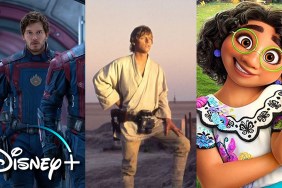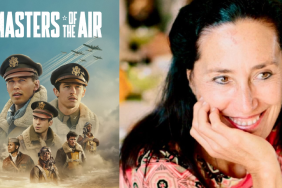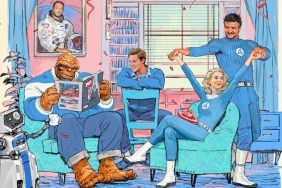Marvel’s Phase 4 has come to an end, and it’s been an interesting ride with many exciting changes and growing pains for the MCU. The biggest has been the addition of Disney+ content, which in the last two years included nine shows — seven live action, one animated, and a series of shorts titled I Am Groot.
However, in late 2022 another game changer for the franchise emerged: the Special Presentations format. These projects, spanning around 45 minutes in length each, function as “bonus” and standalone stories that do not require the amount of dedicated time to watch that a series or even a movie might demand. There have only been two Marvel Special Presentations thus far, but some fans are already calling for them to replace the series format completely.
While the advent of Special Presentations opens up a lot of possibilities for future MCU content, there is definitely still a place for all three formats in the franchise moving forward. Whether or not a format “works” is just a matter of how Marvel Studios chooses to utilize each one of them.

Movies
The foundation of Marvel Studios was built on movies. For most of its existence, this was the only format the company utilized. So the folks running the Marvel Cinematic Universe know how to put together a good movie while curating stories to fit the conventions and length of time expected for the medium.
That said, there are still a few MCU movies that would probably have been served better in other formats. For example, lower-stakes fare like the Ant-Man movies may have been formatted into Special Presentations had that series begun after the Infinity Saga. Additionally, while the character always deserved a movie, Black Widow’s desire to share the backstory of Natasha Romanoff could have made for an interesting Disney+ series showing the different eras of her life while still introducing new characters like Yelena Belova.
But the most obvious one is Eternals, which, as part of Phase 4, theoretically could have been a series. Eternals served as an origin story for 10 different characters, each of whom had been around for thousands of years. They all had big backstories, and while the film gives each of them at least a couple of moments to shine, introducing all of them and telling the tale of their reunion was a lot to fit into one movie, even for one of the longest films in the franchise.
While some of the wonderful visuals of the movie would have likely been sacrificed, the story of Eternals would have been much better suited for the miniseries format — preferably the nine half-hour episode format rather than the six 50-minute episode one. Most episodes could focus largely on one or two characters, with the “modern” sections bookending the flashbacks and providing the “hooks” for viewers to tune back in, ending on the finale with the team battling it out as in the movie. As it stands, Eternals ended up being an origin and reunion film that left a lot of story on the table and focused on characters that likely won’t be super central to the MCU moving forward.
Now, a project not being important to the “overall story” doesn’t mean that it shouldn’t get made. But for the purposes of the MCU, movies need to feel like events. Fair or not, that’s the audience expectation at this point. There are only so many slots for films and they’re the projects which will get the most eyeballs (and money), so the bulk of — if not all — the projects “essential” to understanding the overall narrative should be in this format. This means the “main” characters of the current era should be appearing in the movies and audiences should be able to understand them and their journeys enough to get attached to them via the films alone.

Special Presentations
A TV special is like a mini-movie, or sometimes, a long episode of a TV show. The stakes are usually somewhere in the middle of what one would expect for each of those two formats.
So far, there have only been two Marvel Studios Special Presentations. Werewolf by Night served as an introduction for new characters, an opportunity for genre experimentation within the MCU, and the directorial debut of composer Michael Giacchino. The Guardians of the Galaxy Holiday Special allowed audiences to have more time with some fan-favorite characters in a low-stakes tale that fills a niche (Christmas content) that the studio probably wouldn’t dedicate a movie to.
The above descriptions pretty much cover the roles Special Presentations can fill. There are a lot of things Marvel can do with them as the category with the lowest risk, runtime, and budgets, and their release dates are much more flexible than those of movies or series. The best use of the Special Presentations moving forward would be to give screen time and development to characters who won’t get it in the movies or series, whether it be characters who Marvel is unsure about including in the bigger projects like in Werewolf by Night or ones who are generally more on the sidelines in the main stuff like Mantis in the the Guardians franchise. They can also be used to introduce or flesh out new characters that deserve their own backstories, but who the movies just don’t have time for, which is a role several Disney+ shows have played — but we’ll get to that in a moment.
Audiences are more likely to be willing to give a one-shot story a chance than a series. But again, not everyone who sees the movies will have access to Disney+, so these one-offs can’t have the meat of the overall story in them. Special Presentations should mainly be for the experimental and underappreciated corners of the MCU that can help viewers appreciate the franchise’s main narrative while also providing the option to stray from focusing on matters relevant to that massive story if the creative team wishes.

Series
Disney+ series have been the biggest contributor to the significant increase in MCU content per year since Phase 4 began. There have been eight of them in just two years, which has been overwhelming for a lot of viewers — especially more casual ones. Now that Marvel has debuted its Special Presentations format, many fans are wondering if the series format should simply be retired in favor of this style of programming that requires far less of a time commitment.
It may be easy for some to forget, given that none of Marvel’s Disney+ series in 2022 reached the cultural impact that some of its 2021 shows did, but there are things that Marvel can only do with this format. With that in mind, there should still be a place for more of it in the franchise’s future.
The MCU has always felt like something of a TV series for the big screen, so the addition of actual television series within the franchise (besides the dubiously canon ones on ABC and Netflix) seemed like a natural fit. The team at Marvel Studios is in a bit of a tough spot with these series, though. Like with the Special Presentations, they have to make sure the series are not “required” viewing so that fans without access to Disney+ can still follow the storyline being told in the movies. However, the series format brings an expectation of “importance” to said overall story that Special Presentations are largely free from.
The height of buzz for any Marvel Disney+ series in Phase 4 was for WandaVision. Part of this was likely because of the novelty of a series set in the MCU, along with it being the first release from Marvel Studios in a year and a half while coming out at a time when a lot of COVID-19 lockdowns were in effect. But looking at the show alongside the other most successful series of Phase 4, Loki, it becomes clear just what the Disney+ format delivers that other formats can’t.
The best part about the series format for Marvel has been the collective week-to-week speculation among fans. The two aforementioned series, WandaVision and Loki, were by far the best at this, delivering twists and cliffhangers every episode to keep fans watching and speculating. Some of the other MCU series have not been able to achieve this, particularly certain origin stories which have struggled to fill out six episodes’ worth of story (this is where the Special Presentations format would have come in handy for shows like She-Hulk and Ms. Marvel, and maybe even the semi-origin story of Hawkeye).
Marvel is known for being water cooler talk fare; if a project doesn’t create buzz, it hasn’t done its job. Disney+’s weekly episode drop model for its headlining series means that any shows that come from Marvel Studios need to be able to keep their momentum going for a set amount of weeks, and not all of them have been able to do that. Both Hawkeye and She-Hulk meandered for much of their respective runs, and the most exciting and impactful parts of those shows could have been incorporated into Special Presentation versions of the projects with little of value lost and higher overall cultural impact. These shows may have been more relaxed chapters of the Marvel Cinematic Universe, but series in this franchise need to keep people on the edge of their seat, otherwise many will tune out.
Basically, when it comes to the MCU, series should be stories that actually need a longer length of time to be told than a movie. Some of the ones from Phase 4 feel more like projects that weren’t deemed worthy enough to become movies by the studio for whatever reason and were therefore stretched out into series rather than ones that actually benefit from a weekly release. Really, the only two live action ones that have definitely warranted their series status are Loki, for its ability to break the story up into distinct sections each befitting to an episode of their own, and WandaVision, for the same thing plus its television motif and formatting.
That’s not to say other Marvel shows haven’t benefited in some ways from the series format. While Moon Knight was one of the ones that felt like a movie broken up into chunks, it did have a couple of good cliffhangers to get people talking and the longer format allowed for more introspection, which was some of the best stuff to come out of that project. The Falcon and the Winter Soldier had so much ground to cover that wouldn’t be possible in any other format but a more focused version of the story — potentially in film form — with certain plotlines cut may have resulted in a more polished final product. And the anthology format of the animated What If…? was okay as a series in theory, though the studio might have been better off just making Special Presentations out of the best few ideas for that project than produce it as a weekly show that felt obligated to tie itself all together at the end.
The bottom line is that MCU movies need to feel like events (not always Avengers-level events, but events nonetheless) with high stakes, MCU series need to be meaty stories which keep up the week-to-week buzz, and MCU Special Presentations are the time to experiment with styles and characters the franchise’s audience aren’t used to seeing in the spotlight.










